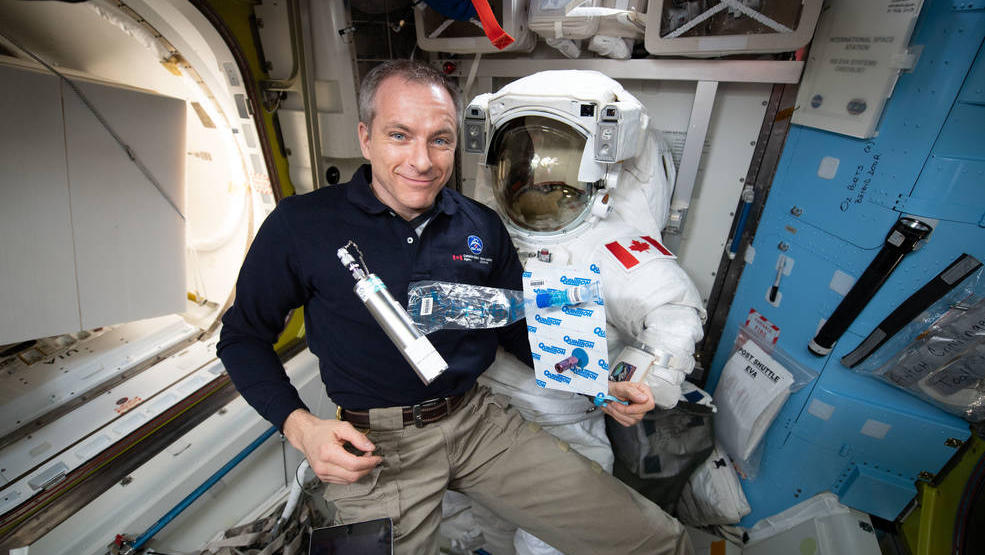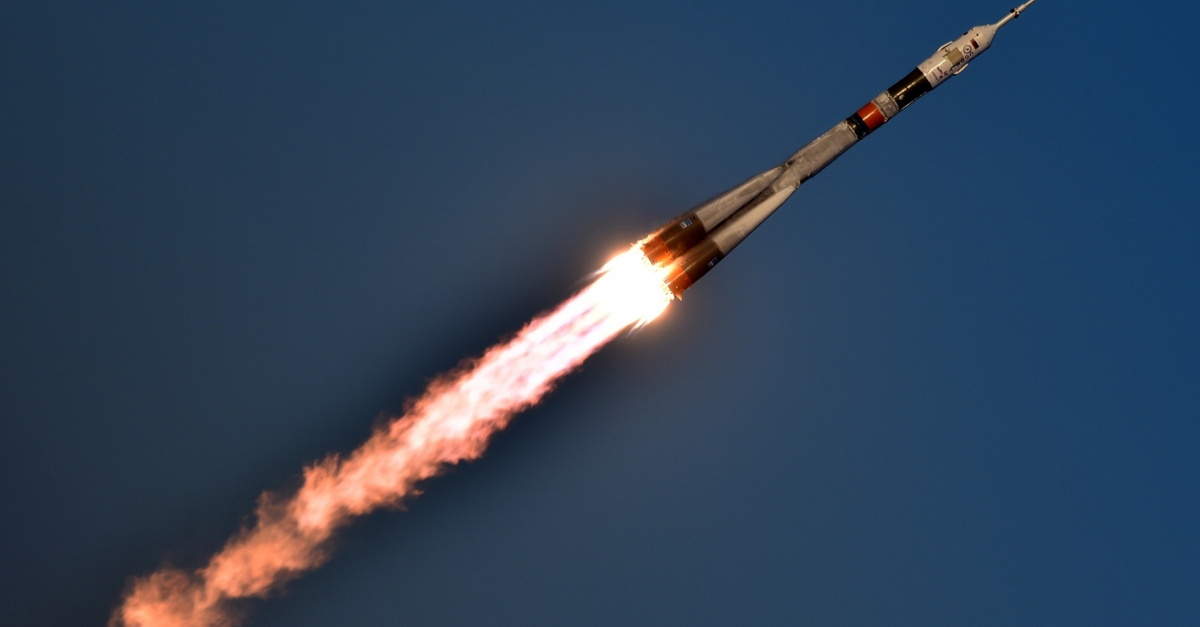Dr. Trudel, professor at the University of Ottawa Faculty of Medicine and a researcher and rehabilitation physician at The Ottawa Hospital, has long been at the forefront of efforts to unravel a key mystery of the physiological impacts of spaceflight.
Now, with a top team of collaborators supported by the Canadian Space Agency (CSA), Dr. Trudel will lead a new study gathering data on spaceflight-induced anemia. Anemia is a condition where there’s fewer healthy red blood cells to carry oxygen to the body's tissues.
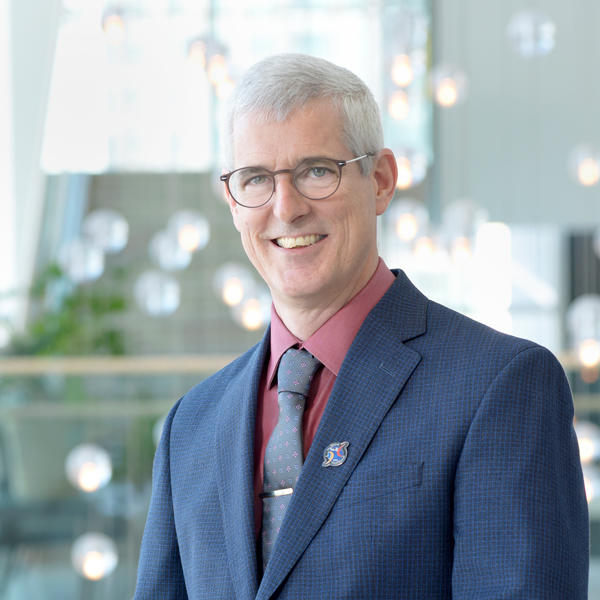
“Ottawa's vibrant medical research ecosystem and support of the Faculty of Medicine and the University of Ottawa has enabled our research to flourish and to become leaders of prestigious and coveted international space research endeavours.”
Dr. Guy Trudel
The CSA made the announcement in a recent briefing, ahead of Canadian astronaut Joshua Kutryk’s long-duration mission aboard the International Space Station (ISS).
As part of the upcoming Starliner-1 mission, the Albertan astronaut is expected to spend up to eight months living and working in microgravity. His mission will support the scientific research led by Dr. Trudel as well as three other new Canadian-led experiments.
Legacy of innovation and impact
The new study – officially titled ‘Spleen Activity in Space Anemia ’ or SPA2 – aims to expand on groundbreaking work already accomplished by Dr. Trudel and his research colleagues. A previous study named MARROW looked at bone marrow health and blood production in space, with funding from the Canadian Space Agency.
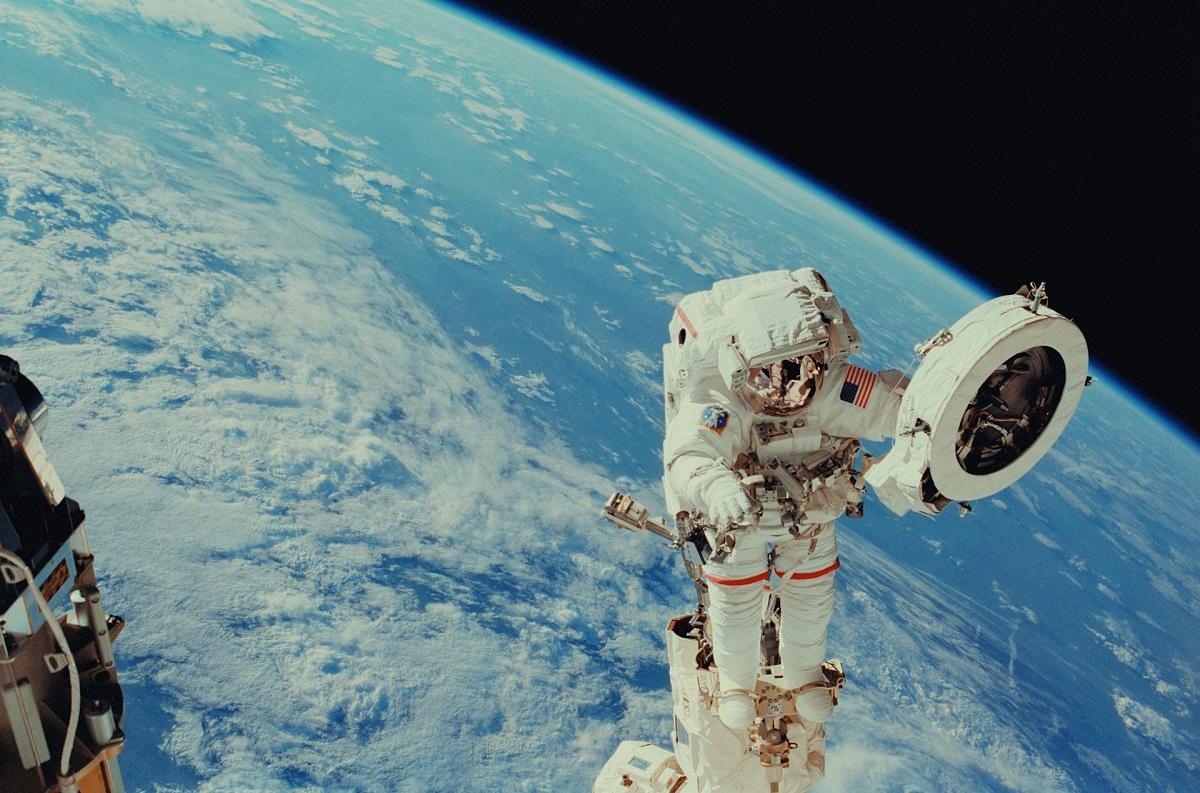
“As humanity prepares for space missions to the Moon and eventually Mars, understanding what causes space anemia and how to alleviate the symptoms is increasingly important.”
Canadian Space Agency
Among other important findings, MARROW’s work found that while space travel depletes red blood cells and bone, the body can eventually replenish them back on Earth with the help of fat stored in the bone marrow.
By combining in-flight measurements with advanced imaging, Dr. Trudel’s team now plans to map changes in spleen size, shape and structure among astronauts on lengthy missions. The spleen is a focal point for the researchers because it plays a critical role in filtering and removing old or damaged red blood cells.
Changes in the spleen’s architecture during a lengthy space mission could help explain why red blood cell destruction is elevated in space – and may pave the way for interventions to mitigate space anemia.
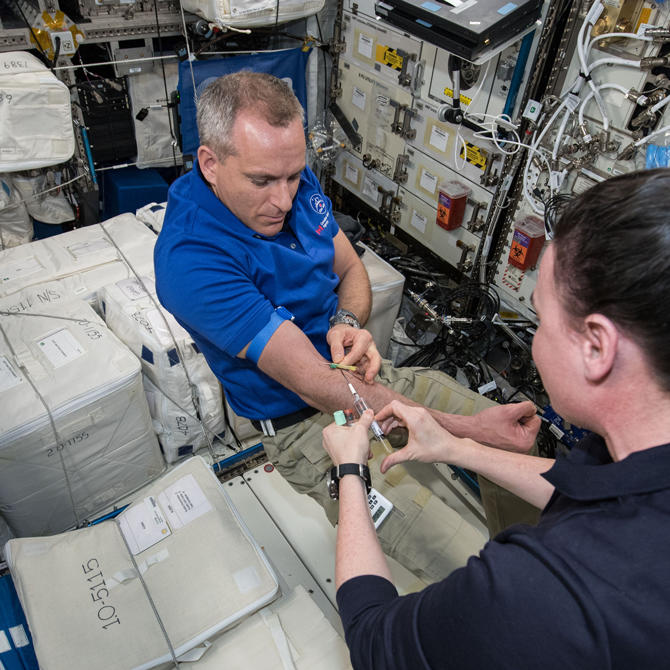
Dr. Trudel says that “MARROW identified that space anemia was hemolytic – or characterized by an increased destruction of red blood cells. SPA2 will focus on answering questions related to space hemolysis.”
This latest work has major implications for the future of human health in space, according to the Canadian Space Agency.
“As humanity prepares for space missions to the Moon and eventually Mars, understanding what causes space anemia and how to alleviate the symptoms is increasingly important,” the agency said in a recent release.
Race against time: The ISS’s limited window
Since the ISS has an expected decommission date in December 2030, there’s a real sense of urgency for the research team. There’s a narrowing window to recruit astronauts, collect meaningful data, and successfully carry out experiments.
“Humans have continuously habited space for the past 25 years. When the ISS retires in 2030, the opportunity to study the effects of exposure to space, especially for long durations, on humans will be markedly restricted,” Dr. Trudel says.
Dr. Trudel says the goal is to recruit 10 or more astronauts on six-to-eight-month missions before the ISS is decommissioned.
“No time to waste,” he says.
Stronger together
Dr. Trudel credits Ottawa’s broad and highly collaborative research ecosystem – bolstered by close partnerships among the Faculty of Medicine, The Ottawa Hospital and other affiliated hospitals and research institutes – with making his team’s ambitious space research possible.
“Ottawa's vibrant medical research ecosystem and support of the Faculty of Medicine and the University of Ottawa has enabled our research to flourish to become leaders of prestigious and coveted international space research endeavours,” Dr. Trudel says.
Support the Faculty of Medicine today!
Use the "other" designation field on our online donation form to support the ‘Research fund in General Surgery’ at the University of Ottawa.
